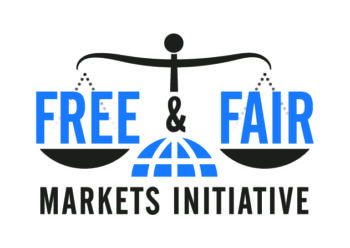
Date: January 9, 2019
Contact: mediacenter@freeandfairmarketsinitiative.org
In Case You Missed It!
Who Gets Hurt When Cities Kowtow To Amazon
The fact is unless we stop them, local and state politicians will continue to advantage Big Tech over longstanding local businesses
Nancy Bass Wyden
CNN
January 8, 2019
I have a message for politicians everywhere. It’s time to stop bending over backwards for Big Tech and time to start listening to local businesses, which have been critical to growing our cities — and our country.
By now, everyone has learned that New York city and state have persuaded the corporate leviathan Amazon to build its next headquarters in Queens. They did this by offering the company $3 billion in tax incentives and state grants. But New York was not the only city to bid for Amazon’s next office. Elected officials in at least 20 cities — from Los Angeles to Boston — were tripping over themselves to offer Amazon their own sweetheart packages.
Such special treatment is not given to everyone. Local business owners, like me, find ourselves increasingly subject to fees and permitting expenses — such as the byzantine corporate franchise taxes — imposed by the same officials wooing Amazon with a favorable deal.
A particularly galling example of this disconnect? As some New York city and state politicians courted Jeff Bezos, others were deciding it would be OK to add to my expenses by requiring my Manhattan bookstore — the third-generation-owned, 91-year-old Strand — to be designated as a landmark building.
This alleged honorific would present me with a regulatory nightmare: When any building is designated a landmark, the New York City Landmarks Preservation Commission henceforth must approve all building changes — from window repair and signage adjustment to the type of mortar used to repair a crack in the walls. The labyrinthine process for such approval places a burden that would cost us time and money — as it does every other small business that is so designated. Maintaining the building would require hiring landmarking experts, architects and lawyers. This additional cost, on top of our already thin margins, could very well grind the Strand into bankruptcy.
After spending the majority of his life working at the Strand and saving his money for more than 60 years, my father, Fred Bass, purchased the building housing the Strand in 1996 to ensure the survival of his business. Ironically, his investment could be the undoing of his life’s work.
Though there is one more hearing at which we can argue our case against landmark status, the odds are unlikely to favor us. The city has made clear its intention to force through the designation.
And now, as one group of New York City bureaucrats lands Amazon’s next headquarters, another group of them fails to see the significance of protecting a working bookstore with 238 employees.
The Amazon deal is not directly related to the city’s landmark commission proposal for the Strand — but the situation certainly throws the irony of cities’ kowtowing to Big Tech while they allow other businesses to suffer into sharp relief. And it’s happening everywhere.
Take Reno, Nevada. Tesla received a $1.4 billion tax incentive to build a battery factory outside Reno. As public services have been decimated by depleted funding — to pay for the incentive — and an influx of out-of-state workers caused a spike in living costs, the longtime working-class residents have been left behind, many descending into poverty and homelessness.
Another high-profile handout is Foxconn, the huge Taiwanese manufacturer, which picked up more than $4 billion from Wisconsin taxpayers, courtesy of Wisconsin politicians, to build a plant in the southeastern corner of the state. Environmental regulations, a significant expense for any of Foxconn’s local competitors, have been waived for the firm’s development. And a portion of the 13,000 blue-collar jobs promised will now go to Taiwanese workers instead.
The fact is unless we stop them, local and state politicians will continue to advantage Big Tech over longstanding local businesses. And without the powerful team of lawyers necessary to take on City Hall, small businesses will continue to suffer.
This dismal reality demands immediate action, as local businesses serve a critical role in our cities. They are meeting places, cultural destinations and even town halls. If they cease to exist, we lose the character of our communities and the sweat equity of our neighbors. We forfeit the American promise of hard work and self-reliance.
There are alternative spending options for our local officials besides cash for jobs. Rather than importing Big Tech, identify strengths and weaknesses of local industry sectors and present financial support in terms of training and technology development to build on what current taxpayers have already started. Local money then stays local.
Do not simply focus on the political expediency of manufacturing gains: Recognize, too, the importance of service industry jobs in supporting the economy. And remember that education and infrastructure are high-impact investments that strengthen small businesses and their customer base.
The message to politicians is clear: Get your priorities in order and focus on the local issues that affect the businesses that have made, and will continue to make, your cities great.
Nancy Bass Wyden is owner of the Strand bookstore in New York. Her husband is US Sen. Ron Wyden, D-Oregon.
To read the full article, click here.
###
ABOUT THE FREE & FAIR MARKETS INITIATIVE
The Free & Fair Markets Initiative (FFMI) is a non-profit coalition of businesses, consumer advocacy groups, workers and community activists committed to scrutinizing and highlighting emerging market trends that are stifling competition and innovation, influencing federal and local government spending, putting consumer data in harm’s way and limiting consumer choice. For a list of members, please visit https://freeandfairmarketsinitiative.org/about-us/members/. For more information on the Free & Fair Markets Initiative, please visit https://freeandfairmarketsinitiative.org.